- Overview
- Full Itinerary
- Photo Gallery
- Costing
- Travel Details
- Trip Reports
- Guide
- Map
- Know Before You Go
- Other Trips You May Like
Jamaica stands out in the Caribbean, featuring the highest number of endemic bird species in the region and an incredible overall diversity of flora and fauna. In addition to the island’s 29 endemic birds, Jamaica boasts 48 endemic reptiles and amphibians; more than 500 endemic land snails; and over 3,000 flowering plants, at least 830 of which are endemic, ranking Jamaica 5th among the world’s islands for endemic plant diversity—mindboggling!
Compared to many tropical regions, birding in Jamaica is relatively easy, and many of the endemic species are fairly common. On this Jamaica birding tour, both the Red-billed and Black-billed Streamertails visit hummingbird feeders at our lodges, along with the handsome Jamaican Mango. The Jamaican Woodpecker, Sad Flycatcher, and White-chinned Thrush are also on our lodge’s grounds. Two full days in the Blue Mountains gives us excellent chances to find Arrowhead Warbler, Yellow-shouldered Grassquit, Crested Quail-Dove, and Blue Mountain Vireo. The lowland forests on the Portland coast provide easy access to Jamaican Lizard-Cuckoo, Jamaican Owl, Greater Antillean Bullfinch, and Orangequit.
And just to make you feel at home, our winter visit during this Jamaica birding tour also features an exciting array of North America’s breeding songbirds. The warbler list alone includes Palm, Prairie, Cape May, Worm-eating, Yellow-throated, and more. Black-throated Blue Warbler may be hopping around on the railing of your balcony!
Beyond the phenomenal nature experience on this Jamaica nature tour, we also enjoy delightful Jamaican hospitality, staying at very comfortable local lodges and tasting the best of Jamaica’s fresh tropical cuisine. This is not your ordinary Caribbean vacation! Jamaica is calling you.




- "Enjoyable birding with focus on endemics; excellent guides; interesting to visit parts of Jamaica that are away from the typical resort/tourist areas." — Christine Perdue, 2023 Traveler
- "Full of birds, natural beauty and good leaders, companions and excellent food and lodging." — Helen Ridley, 2023 Traveler
Tour Highlights
- Watch up to 29 bird species that are endemic to Jamaica, more than any other island in the Caribbean
- Relax and enjoy fairly easy tropical birding, with ample chances for repeat encounters with special birds
- Witness an abundance of Jamaica’s national bird, the Red-billed Streamertail hummingbird!
- Discover rare and endemic plants and an abundance of rare invertebrates and reptiles
- Explore the Blue & John Crow Mountains National Park, a UNESCO World Heritage Site
- Indulge in eclectic Jamaican cuisine, with specialties like jerk chicken, fried dumplings, saltfish, and delicious tropical fruits




Trip Itinerary
Itineraries are guidelines; variations in itinerary may occur to account for weather, road conditions, closures, etc. and to maximize your experience.

Sun., Jan. 28 : Arrivals & Greetings in Kingston
Our tour begins and ends in Kingston, well away from the primary tourism center in Montego Bay. Please arrive at Norman Manley International Airport no later than 4:00 PM. Our U.S. and local guides meet you at the Kingston airport before a short drive to our Port Royal hotel for the first night. We enjoy a casual evening on the harbor, with a little waterbird action and an orientation dinner at our hotel. Early the next morning, we head to Hellshire Hills.
Accommodations in Port Royal (D)

Mon., Jan. 29 : Hellshire Hills & Hope Gardens
This morning after breakfast we head out and explore just west of Kingston—the habitat at Hellshire is a dry limestone forest. The vegetation is dominated by short shrubs, cacti, Red Birch (Bursera simaruba), and Silver Thatch (Coccothrinax jamaicensis). The environment is quite arid, but it is deceptively rich in birdlife. This is one of only two locations on the island where the Bahama Mockingbird can be found. Also common here are the Stolid Flycatcher, Caribbean Dove, and Mangrove Cuckoo. Endemics such as the Jamaican Vireo and Yellow-shouldered Grassquit can also be seen. When the cacti are in bloom, Jamaican Mango hummingbirds are everywhere—get your cameras ready.
After an early lunch, we explore the Royal Botanical Gardens of Hope, a public park managed by the Nature Preservation Foundation. Its large mature trees and diversity of plants promote an equally diverse birdlife. It’s an important place to see migratory warblers like Black-throated Blue, Black-throated Green, Cape May, Prairie, Palm, American Redstart, and Black-and-white Warbler. More importantly however, the gardens are home to a remnant population of Yellow-billed Parrot, with a few Black-billed individuals seen occasionally. Jamaica’s national bird, the Red-billed Streamertail, can be found feeding among the flowers, and the abundant trees are good habitat for Jamaican Woodpecker and Jamaican Euphonia. The Hope Gardens provide a convenient and relaxed setting for some easy birding.
With many Jamaican endemics already under our belts, we take an afternoon drive into the spectacular Blue Mountains, arriving at the Starlight Chalet—our lodge for the next three nights—just in time for dinner.
Accommodations at the Starlight Chalet (B,L,D)

Tues., Jan. 30 & Wed., Jan. 31 : Blue Mountains
For the next two full days, we will immerse ourselves in Jamaica’s famous Blue Mountains. Known around the world for its exquisite coffee, the region recently gained international stature as part of the brand-new Blue and John Crow Mountains UNSECO World Heritage Site. Adding to the area’s geographical resume, we will explore Blue and John Crow Mountains National Park, listed by BirdLife International as a global Important Bird Area.
Our specific Blue Mountain birding sites will include Hardwar Gap, Section, Silver Hill Gap, and Cascade. Throughout the Blue Mountains, we will bird along rugged mountain roads at approximately 3,280 ft. (1000 m) elevation. An impressive list of birds has been recorded in this area, including hard-to-find species such as the Jamaican Blackbird and Crested Quail-Dove. This area is relatively undisturbed, and the roads twist and turn through primary forest and secondary growth. Stands of Blue Mahoe (Jamaica’s national tree) attract numerous Red-billed Streamertails and Orangequits. In other areas, the road is lined with small cottages, with beautiful gardens that attract many bird species. Section and Hardwar Gap combined can provide over 5 mi. (8 km) of lightly traveled, level road, where we could find as many as 25 of Jamaica’s endemic birds.
The Blue Mountains should also produce Ring-tailed Pigeon, Blue Mountain Vireo, Arrowhead Warbler and Jamaican Spindalis. The charismatic Jamaican Tody will be seen throughout the region. Other endemics recorded here include the Jamaican Lizard Cuckoo, Jamaican Becard, and the much sought-after Rufous-throated Solitaire.
Accommodations at the Starlight Chalet (B,L,D)

Thurs., Feb. 1 : Descent to the Coast & Port Antonio
After our final breakfast at the Starlight Chalet, we head down the northern slope of the Blue Mountains to Port Antonio. After lunch at the famous Woody’s Burgers (they offer a great veggie burger for herbivores!), we settle into our base for the next three nights. To give you an optional break in the heat of the day, the afternoon schedule remains open today. You may choose to enjoy a siesta in your villa, bird the grounds and entry road to our lodge, or take a dip in the nearby Caribbean or the lodge’s swimming pool. We enjoy dinner in Port Antonio, followed by a brief jaunt to search for owls and potoos.
Accommodations near Port Antonio (B,L,D)
Fri., Feb. 2 & Sat., Feb. 3 : Ecclesdown Road
This morning begins with an early start as we first head coastward in search of White-tailed Tropicbird. Most of the day is spent in one of Jamaica’s most famous birding sites—the world-class Ecclesdown Road. Ecclesdown is a seldom-used road that travels along the foothills of the John Crow Mountains for approximately 11 miles. It’s entirely flat and passes through secondary closed and open forests as well as small patches of farmland. This area is a stronghold for Yellow-billed and Black-billed Parrots as well as Jamaican Crow, Ring-tailed Pigeon, and Black-billed Streamertail. Every one of Jamaica’s endemic birds has been recorded in these forests! Following our Ecclesdown jaunt, we head to the local jerk-joint for lunch and a casual afternoon of birding around the lodge.
Our last full day again offers several options. You may opt for more birding along Ecclesdown Road, or you may want to swim in the famous Blue Lagoon, just a few minutes from our lodge. Regardless of how you spend your final afternoon, you are always accompanied by one of our guides. Tonight, we enjoy a celebratory dinner in Port Antonio.
Accommodations near Port Antonio (B,L,D)

Sun., Feb. 4 : Return to Kingston | Departures
We spend our final morning birding the grounds of our lodge, where we may find Gray Kingbird, Zenaida Dove, Smooth-billed Ani, the Caribbean-endemic subspecies of Northern Mockingbird, Jamaican Lizard-Cuckoo, and Jamaican Tody. After birding and breakfast, we make the drive back to Kingston for 2:00 PM or later departures. (B)
Cost of the Journey
Cost of the journey is $3790 DBL / $4370 SGL from Kingston, Jamaica. This cost includes all accommodations; meals as specified in the itinerary; professional guide services; other park and program entrance fees; and miscellaneous program expenses. Tour cost does not include round-trip transportation from your home city to Kingston; optional activities; or items of a personal nature, such as laundry, telephone charges, maid gratuities or beverages from the bar.
Travel Details
Please plan to make air travel plans only after the minimum group size has been met. We will send you a confirmation email as soon as the trip has been confirmed.
Arrival and Departure Airport: Norman Manley International Airport (KIN)
Arrival: January 28, 2024. Plan to arrive by 4 PM so you can attend the welcome dinner and orientation.
Departure: February 4, 2024. Plan to leave after 2:00 PM. We drive back from the mountains that day so earlier departure is not possible.
Travel Tips: Our guide and operator in Jamaica recommends that if you plan to come the day before to rest up from travel or need to stay over for a morning flight the following day, that you book at the Port Royal Excelsior Hotel. This lovely hotel has a restaurant and bar, a pool, and waterfront location close to the airport. We can pick you up there on the tour start date. We can pick you up there on the tour start date. If you arrive early, and do not want to take a taxi or shuttle, our operator can arrange a driver to meet you for an additional cost. Kingston is not a safe city to explore on your own by walking, but it has interesting sights and good dining options. The hotel can set up a city tour or driver to local museums such as the Bob Marley Museum or Emancipation Park at the Front Desk, and our birding operator may be able to find a guide/driver to go to the botanic gardens for some additional birding upon request.
Browse below for trip reports and species lists from past versions of this and other tours from this destination.
Jamaica
- March 2022
- March 2023
- March 2024
Jamaica
- January 2024
- March 2024
-
Steve Shunk

Steve Shunk started birding in the San Francisco Bay Area in 1989, and he moved to central Oregon’s ‘Woodpecker Wonderland’ in 1997, where 11 woodpecker species breed annually. This phenomenon led to a 20-year obsession studying this charismatic family of birds. Steve founded the region’s woodpecker festival in 2008, and his Peterson Reference Guide to Woodpeckers of North America was published in 2016. He has fed leeches (his own blood) in Malaysian Borneo, and he has watched Spotless Starlings swarming around the Greek ruins of Sicily. Steve’s Alaska adventures have taken him from Ketchikan to Barrow and St. Paul Island. One of his favorite destinations takes him to see ‘eastern’ warblers breeding across the boreal forest of Alberta, but recent adventures have led him to favor the cushion plants and condors of the Peruvian high Andes. Steve speaks at bird festivals across North America, and he returns annually to speak and guide at the Vallarta Bird Festival in far-western Jalisco, Mexico. Steve joined Naturalist Journeys earlier this year, and we are excited to have him on the schedule for 2021 and beyond.
Steve’s work as a field biologist has taken him from the Coast Range of Oregon to California’s Sierra Nevada. Most recently, he conducted point-count and woodpecker surveys for a study in the Central Oregon Cascades. Steve co-founded the East Cascades Bird Conservancy (now East Cascades Audubon), and served as its first president. He also co-founded the Oregon Birding Trails Program and coordinated its flagship project, the Oregon Cascades Birding Trail. When Steve is not traveling the world for tours and lectures, he can be found writing, skiing, hiking, and watching woodpeckers at home in lovely Sisters, Oregon.Other trips with Steve Shunk
-
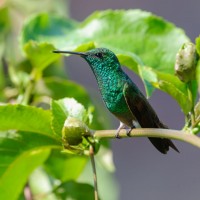 Pacific Mexico & Rancho Primavera FULL - See our November 2025 departure!April 2 - 8, 2025
Pacific Mexico & Rancho Primavera FULL - See our November 2025 departure!April 2 - 8, 2025 -
 Texas Coast & Big Thicket FULL - See South Texas: Birding & Nature tour in March!April 16 - 24, 2025
Texas Coast & Big Thicket FULL - See South Texas: Birding & Nature tour in March!April 16 - 24, 2025 -
 Southeast Arizona FULL - Check out Monsoon Madness in August!April 28 - May 7, 2025
Southeast Arizona FULL - Check out Monsoon Madness in August!April 28 - May 7, 2025 -
 Oregon's Malheur NWR & Woodpecker Wonderland FULL - Check our Oregon's Cascade Mountains!May 16 - 25, 2025
Oregon's Malheur NWR & Woodpecker Wonderland FULL - Check our Oregon's Cascade Mountains!May 16 - 25, 2025 -
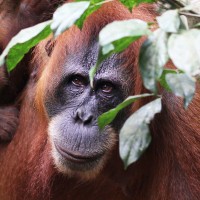 Wild Borneo: Endemic Birding & Nature Only one room left!September 30 - October 14, 2025
Wild Borneo: Endemic Birding & Nature Only one room left!September 30 - October 14, 2025 -
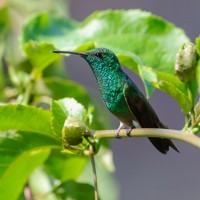 Pacific Mexico & Rancho PrimaveraNovember 24 - 30, 2025
Pacific Mexico & Rancho PrimaveraNovember 24 - 30, 2025 -
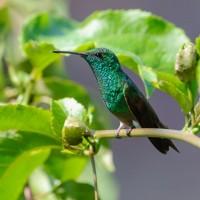 Pacific Mexico & Rancho Primavera: A Winter Escape!Coming January 2026
Pacific Mexico & Rancho Primavera: A Winter Escape!Coming January 2026 -
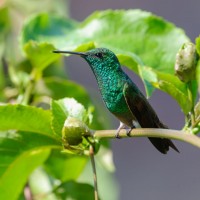 Pacific Mexico & Rancho Primavera: A Winter Escape!February 15 - 21, 2026
Pacific Mexico & Rancho Primavera: A Winter Escape!February 15 - 21, 2026
-
Essential Information +
Pace & Protocols +
Packing List +
Suggested Reading List +
Useful Links +
Photo credits: Jamaican Tody, Steve Shunk; Streamertail, Naturalist Journeys Stock; Jamaican Tody, Naturalist Journeys Stock; Lizard Cuckoo, NJ Stock; Jamaican Woodpecker, NJ Stock, Beach Scenic, NJStock; Blue Mountains, Steve Shunk; Papa Woody, Steve Shunk; Jamaican Birding, Naturalist Journeys Stock; Palm Trees, Naturalist Journeys Stock; Air Jamaica, Steve Shunk; Jamaican Owl, Steve Shunk; Loggerhead Kingbird, Steve Shunk; Jamaican Tody, Steve Shunk; Jamaican Oriole, Steve Shunk; Jamaican Mango, Steve Shunk; Yellow-faced Grassquit, Steve Shunk; White-tailed Tropicbird, Steve Shunk; Vervain Hummingbird, Steve Shunk; Rufous-tailed Flycatcher, Steve Shunk; Ecclesdown Rd. Birders, Steve Shunk; Sad Flycatcher, Steve Shunk; Black-billed Parrot, Steve Shunk; Ring-tailed Pigeon, Steve Shunk; Eccelsdown Rd., Steve Shunk; Bahama Mockingbird, Steve Shunk; Black-throated Blue Warbler, Steve Shunk; Ecclesdown Road, Steve Shunk; Jamaican Oriole, Steve Shunk; Jamaican Spindalis, Steve Shunk; Jamaican Vireo, Steve Shunk; Julie Butterfly, Steve Shunk; Loggerhead Kingbird, Steve Shunk; Prairie Warbler, Steve Shunk; Zebra Heliconian, Steve Shunk; Starlight Chalet, Steve Shunk;




















